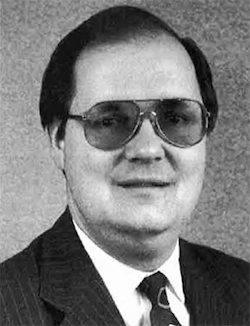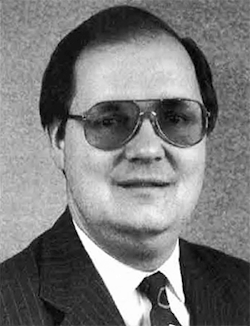The irony of required certification
Part of the Fluid Power Society's 1994 Annual Meeting and Leadership Workshop involved a presentation by Ray Hanley, vice president of certification for FPS. Ray opened his program by explaining how he got started in fluid power shortly after World War II. He worked on oilfield equipment around Pittsburgh and became responsible for hydraulics when his predecessor took on another position. Ray was appointed the “hydraulics expert” mainly because he had done “a little work in pneumatics.” He may have been reluctant to accept such a sink-or-swim proposition, especially because he viewed his position at the time as a sort of interim job and certainly not as a career. But with the thousands of former Gls looking for work, he figured he'd better seize the opportunity — at least until something better came along.
After awhile, Ray developed a genuine interest in fluid power- or as he put it, got hooked. He has been actively involved in fluid power ever since and is a real success story.
One reason for Ray's success has been his self-motivated efforts at obtaining the right training and education. He identified areas in which he needed greater knowledge and gained the necessary training. But not everyone in fluid power is self-motivated like Ray. Some people working on equipment think they know what they are doing, but they don't. These people are dangerous, because they are unaware of their own ignorance, which causes them to repeatedly make the same mistakes rather than learn from them. This not only gives fluid power a bad name but has actually been responsible for deaths, either through ignorance or negligence.
Ray explained that requiring an employee to be a certified mechanic, technician, or specialist provides at least some measure of an individual's competence. To protect themselves, employers may require prospective employees to become certified before they can be hired or work on any fluid power equipment. Some may even require current employees to get certified or get a new job. After all, how would it look to a jury in a liability case if an accident or oversight might not have happened if employees had been certified?
In general, this required certification is good for fluid power because it provides a means for weeding out incompetent people — or at least motivates them to educate themselves enough to become certified. I just find it ironic that Ray Hanley, of all people, is pushing certification as a requirement to work on fluid power equipment. If certification had been required when Ray first got started, he might've thought, “Hey, this is just an interim job. Why should I go through the trouble of getting certified? I'm outta here.” We may have lost a valuable member of our industry before we he ever got hooked. Thank goodness that didn't happen.


